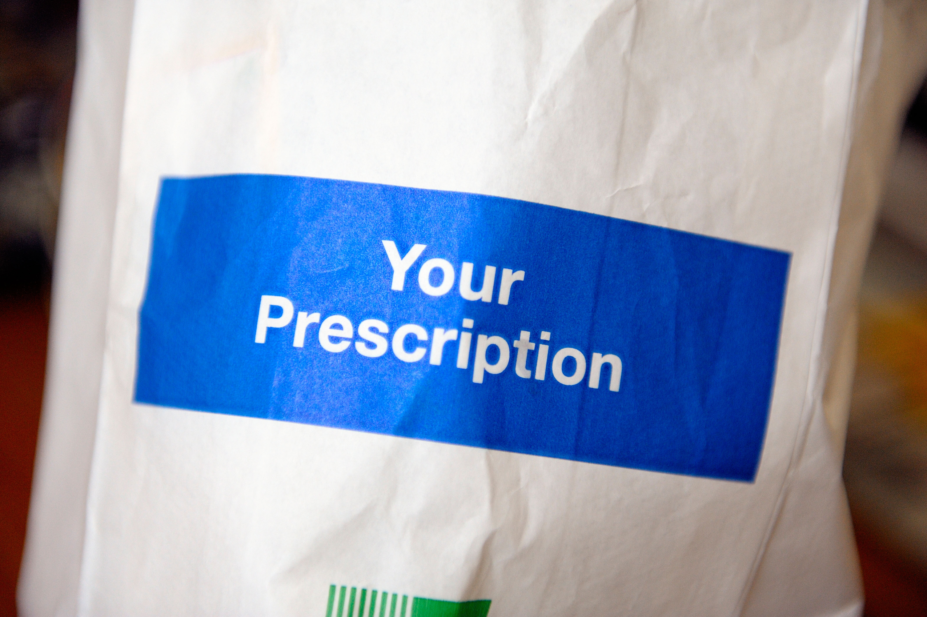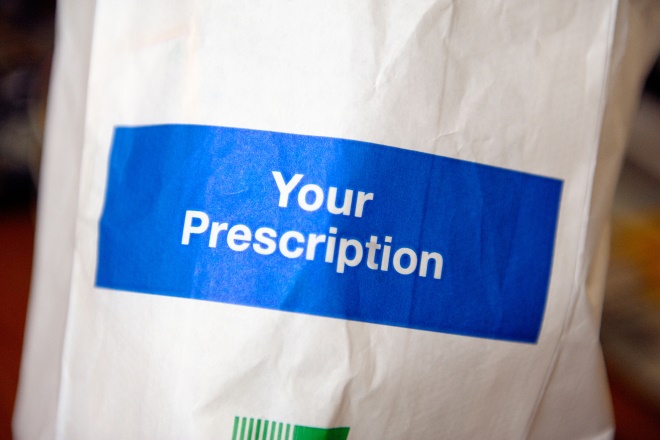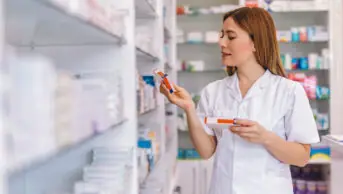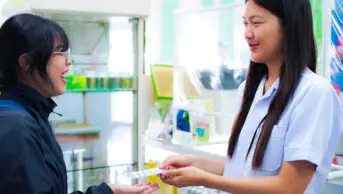
ACORN 1 / Alamy Stock Photo
Open access article
The Royal Pharmaceutical Society has made this article free to access in order to help healthcare professionals stay informed about an issue of national importance.
To learn more about coronavirus, please visit: https://www.rpharms.com/resources/pharmacy-guides/wuhan-novel-coronavirus

Source: Alamy Stock Photo
Guidance from the Pharmaceutical Services Negotiating Committee states that pharmacies have “an obligation” to ensure an individual is appropriate for the role, when directly requesting for a volunteer to deliver medicines
Some pharmacies have said they will not use NHS volunteers for delivering medicines to vulnerable patients during the COVID-19 pandemic, after guidance from the Pharmaceutical Services Negotiating Committee (PSNC) has stated they would be responsible for ensuring that safety checks on volunteers had been carried out.
All pharmacies, other than distance selling pharmacies, must now provide an essential pandemic medicines delivery service for shielded patients (those who have been told they must self-isolate for 12 weeks), while contractors can choose to provide an advanced delivery service.
Under the essential service, pharmacies must provide advice to patients who cannot arrange to have their prescription collected, covering how to find a volunteer who can deliver their prescription. If this is not possible, the pharmacy must deliver the medicine themselves as part of the advanced delivery service, or find another pharmacy who can arrange a delivery.
Volunteers can be found via local schemes or as part of the national scheme run by the Royal Voluntary Service, which has signed up more than 750,000 people. Pharmacists can match shielded patients with volunteers through the GoodSam app or via a website or call centre. All volunteers will receive a starter pack which advises them to show their GoodSAM ID and another form of photographic identification when they arrive at the pharmacy, as well as information on how to safely deliver medicines.
Every pharmacy will receive a monthly payment for providing the essential delivery service based on their dispensing volume, amounting to £500 for ‘average’ pharmacies providing between 5,000 and 12,500 prescriptions each month. If a pharmacy chooses to provide delivery itself, under the advanced service, it will be paid £5 per delivery.
In detailed guidance on the pandemic delivery service, the PSNC said that, where a pharmacy was directly involved in requesting a volunteer to deliver medicines, they have “an obligation” to ensure the individual is appropriate for the role including whether they have had a recent disclosure and barring service (DBS) check.
“It is not with the majority that the concerns lie; it is with the minority of individuals who may seek to exploit those who are isolated and dependent on others for help, or simply be careless as to their safety or their personal information,” the guidance from the PSNC said.
Pharmacies should also consider how the use of volunteers may affect indemnity insurance and “further guidance from other bodies should be read and acted upon before selecting and using volunteers to deliver prescriptions on behalf of a pharmacy”, it added.
Concerns over the extra workload and risk involved has prompted some pharmacists to say they will avoid using volunteers altogether.
Amanda Smith, pharmacy manager at Heath Pharmacy in Halifax, West Yorkshire, said: “We’ve not needed to use the volunteer service yet and, at the moment, I don’t think we’ll want to — especially if there is an onus on us to check the volunteer.”
“It puts us in a difficult position, so we will continue to use our own delivery drivers where at all possible.”
Martin Bennett, managing director at the Wicker Pharmacy in Sheffield, South Yorkshire, said they too had decided not to use volunteers for deliveries.
“We are happy to advise patients on how they might obtain the help of a volunteer to collect for them and, under those circumstances, we are very happy to supply to their representative.”
But he added: “For deliveries where we are responsible, we will insist on using DBS-checked drivers employed by us.”
Rifat Asghar-Hussain, superintendent pharmacist at Evergreen Pharmacy and Green Cross Pharmacy in Birmingham, said: “The volunteer service does not work in pharmacy, in my opinion. We have to have drivers available ‘on tap’, as we have last-minute urgent meds to deliver. The DBS check has been the ultimate deterrent for me.
“We cannot rely on volunteers for a complicated service like medicine delivery. We definitely do not have the time to vet volunteers either. Volunteers are also not reliable enough to use every day for vital medicines. The government has got the whole system wrong.”
Nat Mitchell, pharmacist and director at JWW Allison and Sons pharmacy in Cockermouth, Cumbria, said: “I appreciate the gesture from volunteers, but it does make a mockery of the training we provide to our regular drivers and adds unnecessary risk.”
“The new official scheme confuses matters further and I won’t be seeking out volunteers for shielded patients. If they don’t have a family member or friend available, I make them aware of the volunteer scheme, but I’m not coordinating it.”
In a joint statement, published on 15 April 2020, the General Pharmaceutical Council (GPhC) and Royal Pharmaceutical Society (RPS) said: “The RPS and GPhC would like to reassure pharmacy teams and pharmacy owners that we support the use of NHS volunteers as an option to get medicines to extremely vulnerable people when it’s not possible to use patients’ own representatives or pharmacy delivery services. Pharmacy professionals acting in accordance with the standards and using NHS Volunteer Responders in good faith, in line with the service specifications of the pandemic delivery service, will not be regarded as responsible for actions of other people outside of their control.”


